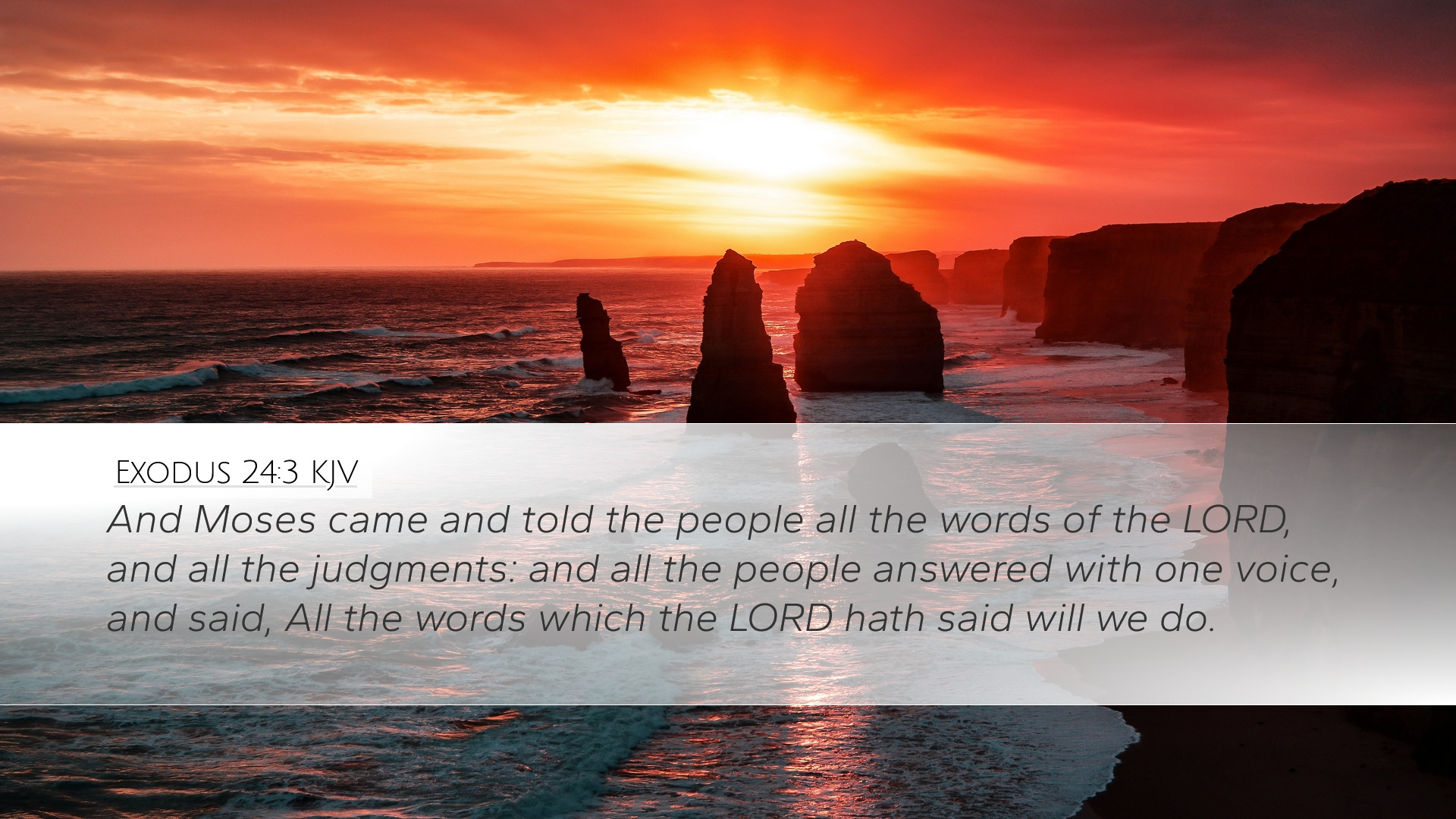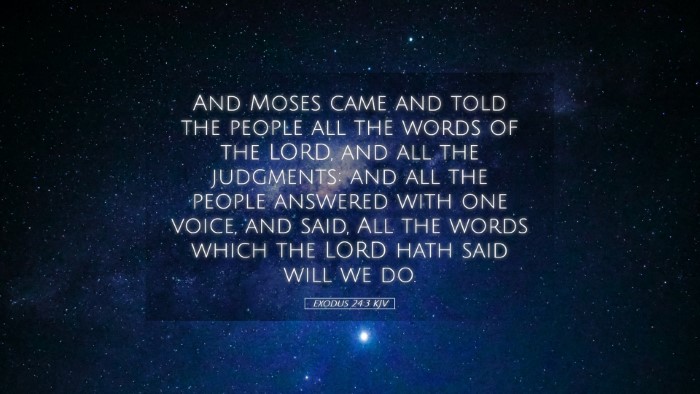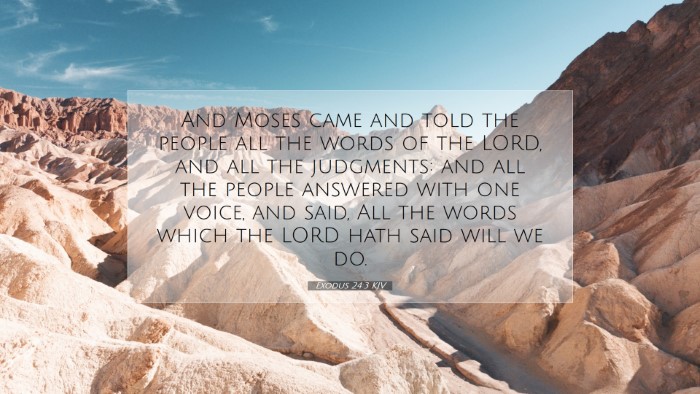Commentary on Exodus 24:3
Verse: "And Moses came and told the people all the words of the Lord, and all the judgments: and all the people answered with one voice, and said, All the words which the Lord hath said will we do."
Introduction
The passage from Exodus 24:3 is a pivotal moment in the Biblical narrative, highlighting the Israelites' response to God's covenant. This commentary synthesizes insights from notable public domain Biblical scholars, focusing on the significance of the covenant, the authority of God's Word, and the collective responsibility of God's people.
The Authority of God's Word
Matthew Henry highlights the importance of Moses as the mediator between God and the Israelites. He emphasizes that Moses brings not just laws, but the very words of the Lord, which carry divine authority. This act signifies that the covenant is grounded in God's sovereignty and holiness. Moses, as the servant of God, faithfully communicates God's commands and decrees to ensure that the people understand the seriousness of their commitment.
Albert Barnes notes that the phrase "all the words of the Lord" indicates a comprehensive communication of God's will. The emphasis here reflects the completeness of the revelation given to Moses. It is essential to recognize that God's instructions are not arbitrary but are filled with purpose and direction for the life of His people, setting a foundational understanding of obedience and faithfulness.
The Collective Response of the People
Adam Clarke points to the significance of the people's united response, "All the words which the Lord hath said will we do." This declaration showcases the collective conscience and commitment of the Israelite community. It serves as an important example of corporate accountability in the faith journey, demonstrating the power of a unified commitment to God’s will.
The response of the Israelites, coming from one voice, indicates a strong consensus, reflecting a deep sense of responsibility. Clarke argues that their willingness to obey illustrates both their understanding of the gravity of the covenant and their desire to establish a relationship with God rooted in loyalty and trust.
Covenant and Commitment
The passage also signifies the establishment of a covenant relationship, which is central to the Biblical narrative. Matthew Henry underscores that this moment marks the formal acceptance of the covenant by the people. By stating that they will do all that God has commanded, the Israelites align themselves with God’s purposes, acknowledging their role in His divine plan.
Furthermore, this commitment requires not just verbal assent but action; it demands obedience as an expression of their faith. Albert Barnes highlights that true faith is evidenced by obedience, and the people's declaration reflects a commitment that would be tested throughout their journey. The covenant outlines both blessings and responsibilities, urging leaders and congregants alike to take such commitments seriously.
The Implications for Leadership and Community
This verse also provides significant insights for church leaders. Adam Clarke emphasizes the role of leaders in communicating God’s Word effectively. The importance of clarity and comprehensiveness in conveying Biblical teachings cannot be overstated. Moses’ role exemplifies the responsibility of pastors and teachers to ensure that the congregation is aware of what God requires of them.
This passage serves as a reminder to church communities that individual and collective responses to God's Word matter. There is a powerful theological truth in understanding that the health of a congregation lies in its commitment to the Scriptures as a whole, engaging with them mutually as body members under Christ.
Conclusion
In conclusion, Exodus 24:3 serves as a rich source of theological reflection and practical application. The authority of God's Word, the significance of collective response, and the implications of covenant commitment all converge in this brief but profound passage. This commentary, drawing from the insights of Matthew Henry, Albert Barnes, and Adam Clarke, calls pastors, students, theologians, and Bible scholars to a deeper understanding of their relationship with God’s commandments and the communal nature of faith.


